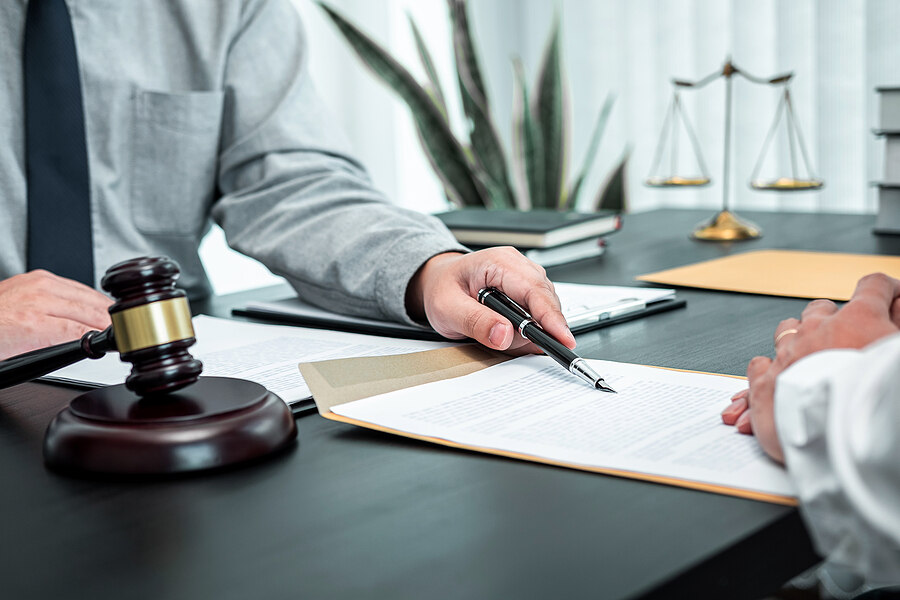A misdemeanor conviction can have significant consequences on various aspects of an individual’s life. Whether it’s related to employment, housing, education, or personal relationships, understanding the implications of such a conviction is crucial. This article aims to shed light on the topic and provide valuable insights for those facing or curious about misdemeanor convictions and, for those facing, share why you should consult a criminal justice attorney.
Introduction
A misdemeanor conviction refers to a criminal offense that is less severe than a felony but more serious than an infraction. These offenses cover a wide range of unlawful activities, such as petty theft, public intoxication, vandalism, or driving under the influence (DUI). While misdemeanors may not carry the same weight as felonies, they can still have long-lasting consequences that affect an individual’s future opportunities.
Types of Misdemeanor Offenses
Misdemeanor offenses are typically categorized into different classes or levels based on their severity. Classifications may vary between jurisdictions, but they generally include misdemeanors of the first degree, second degree, and third degree. Examples of common misdemeanor offenses include simple assault, disorderly conduct, trespassing, and minor drug possession.
Legal Process and Penalties
When facing a misdemeanor charge, individuals go through a legal process that involves arrest, arraignment, trial, and potential sentencing. Penalties for misdemeanor convictions can range from fines and probation to community service and short-term incarceration. The severity of the offense, prior criminal record, and other factors influence the specific penalties imposed.
Criminal Record and Background Checks
One of the primary consequences of a misdemeanor conviction is the impact it has on an individual’s criminal record. A criminal record serves as a permanent record of an individual’s interactions with the criminal justice system, including arrests, charges, and convictions. Background checks conducted by employers, landlords, or educational institutions can reveal these records, potentially affecting the outcome of applications.
Professional Licenses and Certifications
Certain professions require licenses or certifications, and misdemeanor convictions can jeopardize an individual’s ability to obtain or maintain these credentials. Industries such as healthcare, education, finance, and law enforcement often conduct background checks and consider an applicant’s criminal history. Misdemeanor convictions may raise concerns about an individual’s character and suitability for certain roles.
Employment Opportunities
Having a misdemeanor conviction on one’s record can significantly impact employment opportunities. Many employers conduct background checks as part of their hiring process, and a misdemeanor conviction can raise concerns about an applicant’s trustworthiness or reliability. It is crucial for individuals with misdemeanor convictions to be transparent during the application process and showcase personal growth and rehabilitation.
Housing and Rental Applications
Misdemeanor convictions can also create challenges when seeking housing or rental opportunities. Landlords often conduct background checks to assess the suitability of potential tenants. A misdemeanor conviction may lead to rejections or limited housing options as landlords prioritize applicants with clean records. Individuals with convictions may need to provide additional documentation or references to secure a lease.
Educational Opportunities
Misdemeanor convictions can affect an individual’s pursuit of educational opportunities. Some educational institutions, particularly those offering professional programs, conduct background checks on applicants. A misdemeanor conviction may hinder admission to certain programs or limit access to financial aid options. However, there are still opportunities available, and individuals with convictions can explore alternative pathways or rehabilitation programs.
Financial and Personal Consequences
Beyond the legal and practical ramifications, misdemeanor convictions can also have financial and personal consequences. Fines, legal fees, and court costs can create financial burdens. Additionally, strained personal relationships, damaged reputation, and emotional distress are common effects. It is essential for individuals facing misdemeanor charges to seek support from loved ones and resources that assist in rehabilitation and personal growth.
Rehabilitation and Expungement
Rehabilitation programs and resources play a crucial role in helping individuals with misdemeanor convictions reintegrate into society. Completion of these programs demonstrates a commitment to personal growth and rehabilitation, which can positively influence future opportunities. Expungement, the process of sealing or erasing criminal records, may also be an option for individuals seeking to overcome the long-term consequences of a conviction.
Seeking Legal Assistance
Navigating the legal system can be complex, especially when facing a misdemeanor conviction. Consulting with an experienced attorney from The Nieves Law Firm is highly recommended to ensure proper legal representation. An attorney can guide individuals through the legal process, explain the potential consequences, and help build a strong defense. Their expertise can significantly impact the outcome of the case.
Effects on Immigration Status
Non-U.S. citizens who receive misdemeanor convictions may face additional consequences, including potential immigration-related issues. Certain misdemeanor offenses can lead to deportation or denial of citizenship applications. It is crucial for non-U.S. citizens facing criminal charges to seek legal counsel specialized in immigration law to understand the implications and explore potential options.
Youthful Offenders and Juvenile Records
Youthful offenders, typically individuals under the age of 18, may face specific considerations when dealing with misdemeanor convictions. The focus is often on rehabilitation rather than punishment. Juvenile records, although typically sealed upon reaching adulthood, may still have implications on future opportunities. It is essential to understand the local laws and consult with legal professionals familiar with juvenile justice.
Steps to Avoid Misdemeanor Convictions
Prevention is always better than dealing with the consequences of a conviction. Individuals can take proactive steps to avoid behaviors that may lead to misdemeanor charges. This includes understanding local laws, seeking legal advice when necessary, practicing responsible decision-making, and seeking support and guidance from mentors or counseling services.
Conclusion
Understanding the consequences of a misdemeanor conviction is crucial for individuals facing such charges and the wider community. From impacting employment and housing opportunities to affecting educational pursuits and personal relationships, the repercussions of a conviction are far-reaching. However, it’s important to remember that with the right support, rehabilitation, legal representation from The Nieves Law Firm’s criminal justice attorneys, and guidance, individuals can overcome the challenges and work towards building a positive future.

